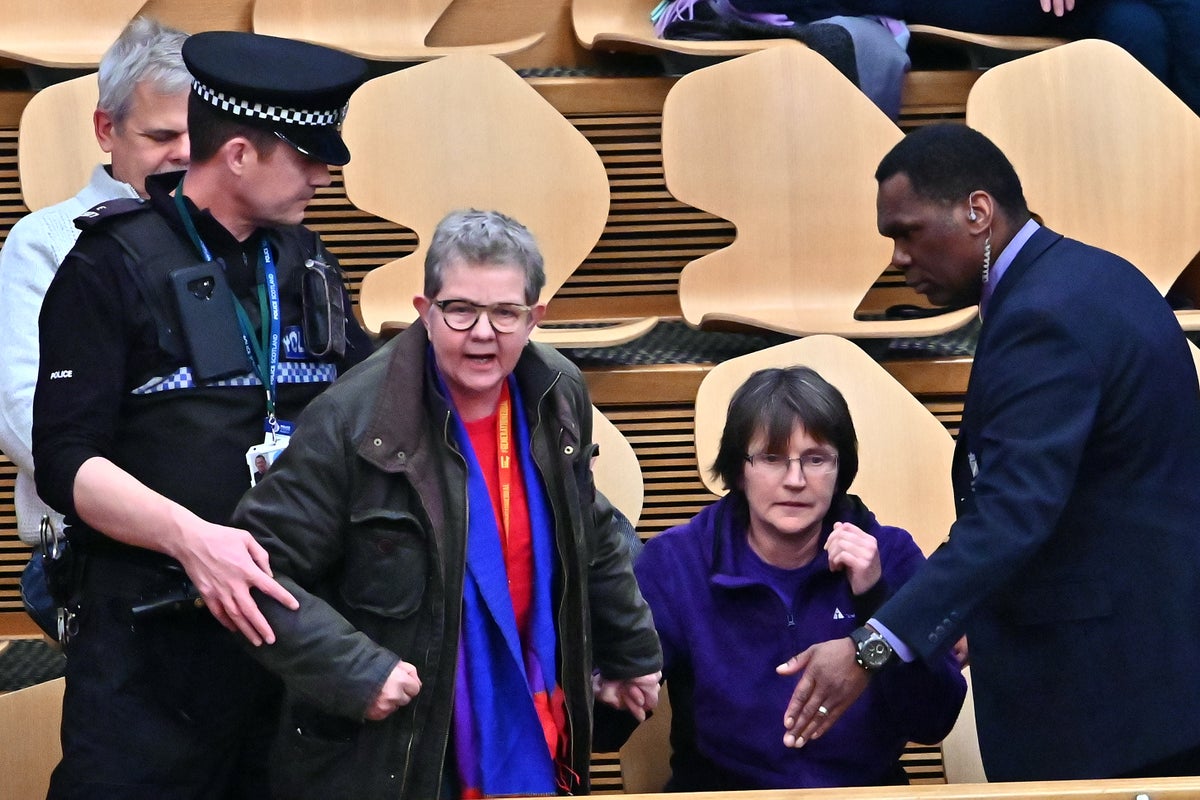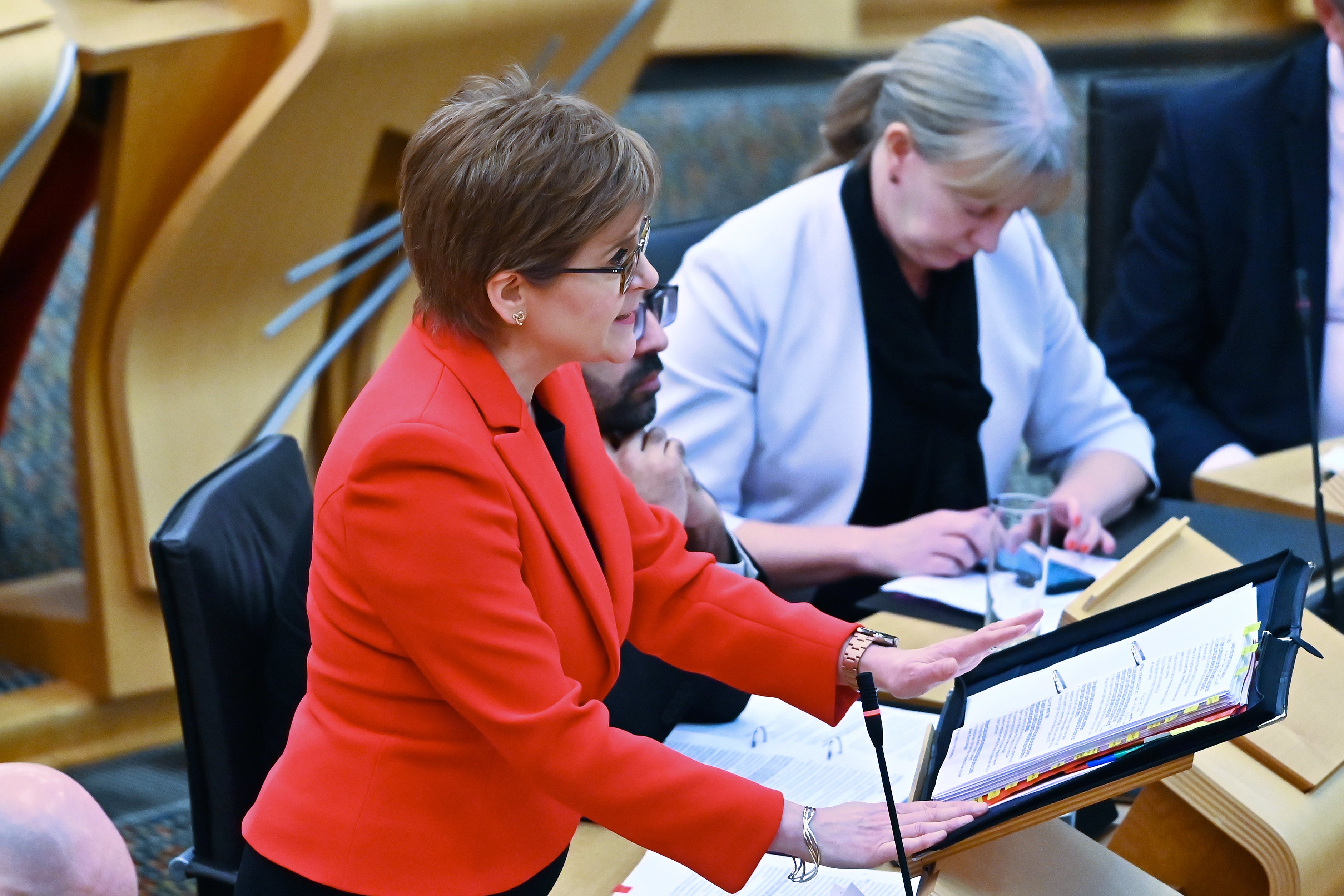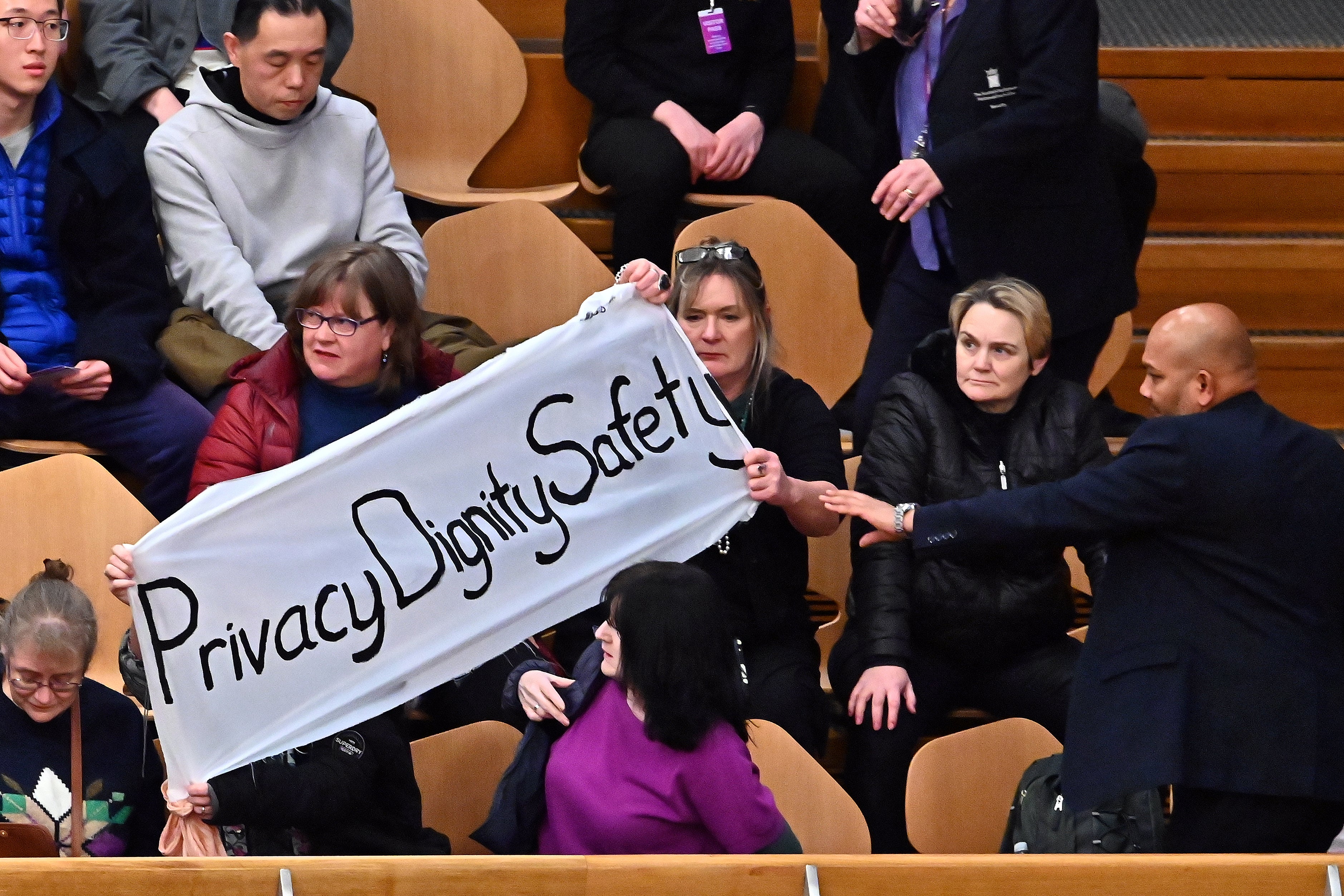
Scotland has become the first part of the UK to approve gender self-identification plans that some applauded as a “historic day for equality”, while others protested over the rights of women and girls.
The UK government has said it may block Scotland's controversial new gender recognition laws - but Holyrood has warned any attempt to do so would be “vigorously contested”.
MSPs backed the proposals by 86 to 39 in the final vote in the Scottish parliament, making it easier and less intrusive for individuals to legally change their gender, while extending the system of self-identification to 16- and 17-year-olds for the first time.
The reforms, which have split the ruling SNP, remove the need for a medical diagnosis of gender dysphoria before a gender recognition certificate can be obtained.
Opponents say it could endanger women and girls by putting single-sex spaces at risk, something the Scottish government has repeatedly denied.
The passage of the bill does not clear its path to the statute book, with Scottish secretary Alister Jack now able to legally challenge the law if he believes it impacts on the UK, while private groups are also able to take legal action should they wish.
UK equalities minister Kemi Badenoch has raised concerns about the impact of the Bill on the rest of the country.
In a statement after the final vote, Mr Jack said the UK government will consider action in the Supreme Court.
“We share the concerns that many people have regarding certain aspects of this bill, and in particular the safety issues for women and children,” he said.
“We will look closely at that, and also the ramifications for the 2010 Equality Act and other UK-wide legislation, in the coming weeks - up to and including a Section 35 order stopping the bill going for Royal Assent if necessary.”
Under the Scotland Act, the UK government can challenge devolved legislation if it feels it impacts on national security or reserved matters.
But a Scottish government spokesperson warned that “any attempt by the UK government to undermine the democratic will of the Scottish parliament will be vigorously contested”.
The Gender Recognition Reform Bill has been one of the most controversial since devolution, and Thursday’s debate saw a number of protesters ejected from the Holyrood chamber for disrupting proceedings, shouting “shame on you” and “this is the darkest day”.
However, there was applause from MSPs after the final vote, which was backed by the SNP and Green parties and by Labour and Liberal Democrats, but opposed by Tories.

Scottish Conservative MSP Rachael Hamilton said the plans had “shown this parliament at its worst”.
“In the rush to make the process a little easier for trans people, the government is making it easier for criminal men to attack women. That’s the problem here,” she said.
Ms Hamilton said the Bill – which she claimed would be a “legacy issue for the first minister” – would “let criminal men exploit the system” and put women at risk in single-sex spaces.
However, Shona Robison, the exemptions minister, said the Equality Act will continue to provide exemption for single-sex spaces where trans people can be excluded in certain circumstances.

Labour’s Pam Duncan-Glancy said the legislation provides MSPs with “one of those rare moments… where we all have a real opportunity to improve lives and directly tackle inequality”.
She said the bill will help “society to accept them [trans people] and to support them to be their best selves, without barriers or additional costs or medicalisation”.
“I believe strongly the reform we will vote for today has been a long time coming, and that is why changing the current onerous, lengthy and invasive process of legal gender recognition has always been so important to me.”
The Greens said the law was “a small but significant change that will make a big difference,” adding: “It's a truly historic day for equality.”
Stonewall hailed a “victory for trans and all human rights in Scotland”.
The passage of the bill this week comes against the background of repeated protests outside Holyrood from supporters and detractors of the bill.
The legislation has also raised the spectre of another rebellion from the SNP benches – after seven MSPs from the ruling party voted against the bill at stage one while two more abstained.
Former minister Ash Regan was forced to resign as a result of her vote against the bill and has since become a staunch opponent of the legislation.
She said on Wednesday she would vote against the bill, while fellow SNP MSP Michelle Thomson said during the debate on the legislation on Thursday she would oppose it, hitting out at the lack of a free vote granted by party whips. SNP MP Joanna Cherry has also voiced her opposition.
Following the final vote on the bill on Thursday, MSPs will have spent 24 hours this week debating it after two marathon sessions considering amendments on Tuesday and Wednesday – with the latter finishing at 0115 on Thursday.
The Tories have been accused of an attempt to filibuster the legislation, proposing numerous points of order and forcing almost all amendments to votes that were sometimes not required.







